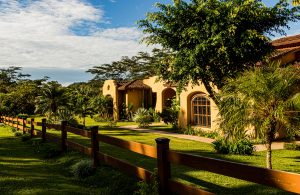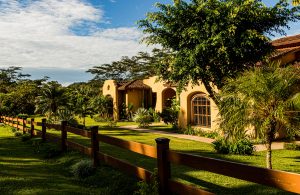How Homestead Property Is Inherited by a Surviving Spouse and Adult Children in Florida


Florida laws on homestead property are complex but can also provide homeowners with benefits. The laws provide for exemptions on taxes and specific distribution of the homestead property when the owner passes away. It is important to consider the impact of homestead property in your estate planning process as it is different than other property you may own.
The Florida State Constitution, Article X, section 4 provides three basic requirements for property to be homestead property. Those basic requirements are (1) that the property is owned by a natural person, (2) the property was made or intended to be the permanent resident of the owner or their family, and (3) subject to certain size and contiguity requirements.
Why Is Homestead Property Important in the Probate Process?
Consider this hypothetical situation…
A husband and his wife live together on homestead property. The husband is the only owner on the title for the property. The husband passes away and is survived by his wife and adult children from a previous marriage. What options does the surviving spouse have? What about the adult children from another marriage?
The most basic answer is that the surviving spouse would have a life estate in the property and the adult children would have vested remainders. F.S. §732.401. This means that the wife would be able to live on the property for the rest of her life and when she passed away, the property would pass to the adult children. Unfortunately, the life estate that the surviving spouse receives according to this law does not give the wife full control of the property. Because the descendants have a future interest in the property, the vested remainders, the wife cannot sell or rent the property without their consent.
Expenses relating to the ownership of the homestead property are split between the surviving spouse as life tenant and the decedent’s descendants as having a vested remainder interest.
Another option is that the surviving spouse may choose an “undivided one-half interest in the homestead as a tenant in common.” F.S. §732.401(2). The other half would go to the decedent’s descendants. In the hypothetical case we are using, the other half would go to the husband’s adult children from another marriage.
Why Would the Surviving Spouse Choose to Elect the One-Half Interest?
Where the surviving spouse gets a life estate, they are unable to devise or bequeath the property to the individual(s) they choose. This is because after the life estate, the property will pass to the decedent’s descendants.
In the case we are using of a wife and adult children from another marriage, the wife would not be able to determine what happens to the property after she passes away. Without the election, the wife is unable to pass the property to individuals of her choosing. For example, if she wished to devise the property to her daughter outside of the marriage, she would be unable to do so.
If the decedent’s descendants were from the marriage to the surviving spouse, it may not make as much sense to make this election. However, if the surviving spouse wished to eventually pass her one-half interest in the property to someone else, she would need to take this election.
What Do I Need to Know About This Election?
Only the surviving spouse or an attorney for the surviving spouse may make the election. The election must be made within 6 months after the decedent’s death. Once the election has been made, it is irrevocable, it cannot be changed.
How Can Estate Planning Be Used for Homestead Properties?
Florida Statutes section 732.4015 provides that if there are no minor children of the decedent, the homestead may be devised by will to the owner’s spouse.
The distribution of property also depends on how the property was held by the owner. One type of ownership is tenancy by the entirety, meaning the husband and wife had the same interest in the property. If the property was owned in tenancy by the entirety, the homestead would have automatically vested 100% of the interest in the wife. Similarly, the process changes if the property was owned in joint tenancy with rights of survivorship. Joint tenancy means that each party owns the same percentage and when one owner dies, that percentage is distributed to the surviving owners. These forms of ownership are completed either when the property is purchased or after. The ownership is reflected through the language used for the deed. If the homestead property is owned in joint tenancy or tenancy by the entirety, the property will pass according to that ownership rather than the other rules of descent by intestacy. F.S. §732.401(5).
While the different forms of ownership may not sound like traditional estate planning, there are many tools which can be used to determine how your property will be distributed after you pass away. By structuring the ownership of the homestead property accordingly, the owners can determine how it will pass outside of the mandatory life estate in the surviving spouse and vested remainders to the decedent’s descendants.
Option to Waive Spousal Homestead Rights
If for some reason the spouse is okay with the homestead property being devised to someone other than them, they can waive their homestead rights. F.S. §732.7025. For example, if the property was where the adult children grew up and the spouse moved there only after they had moved from the property, she may wish to allow the property to be devised to them.
What Options Do the Adult Children Have?
Unfortunately, the adult children from outside the marriage do not have as many options. If the election discussed above is not made by the surviving spouse, the descendants are responsible for their portion of the fees for the maintenance of the homestead property. Because this may impose a burden on the descendants, they could agree with the surviving spouse to sell or rent the property, to alleviate those costs. The amounts received from sale or rental of the homestead would be divided according to the interests in the property, meaning that the surviving spouse and descendants would be entitled to a percentage.
It is essential for homestead property owners to consider the implications of being the only owner of the property.
If you have any questions about how to handle a probate situation regarding homestead property in Florida or want to know more about how you can incorporate it into your estate plan, contact Stivers Law today. We are always happy to help figure out what the best options are for you.



